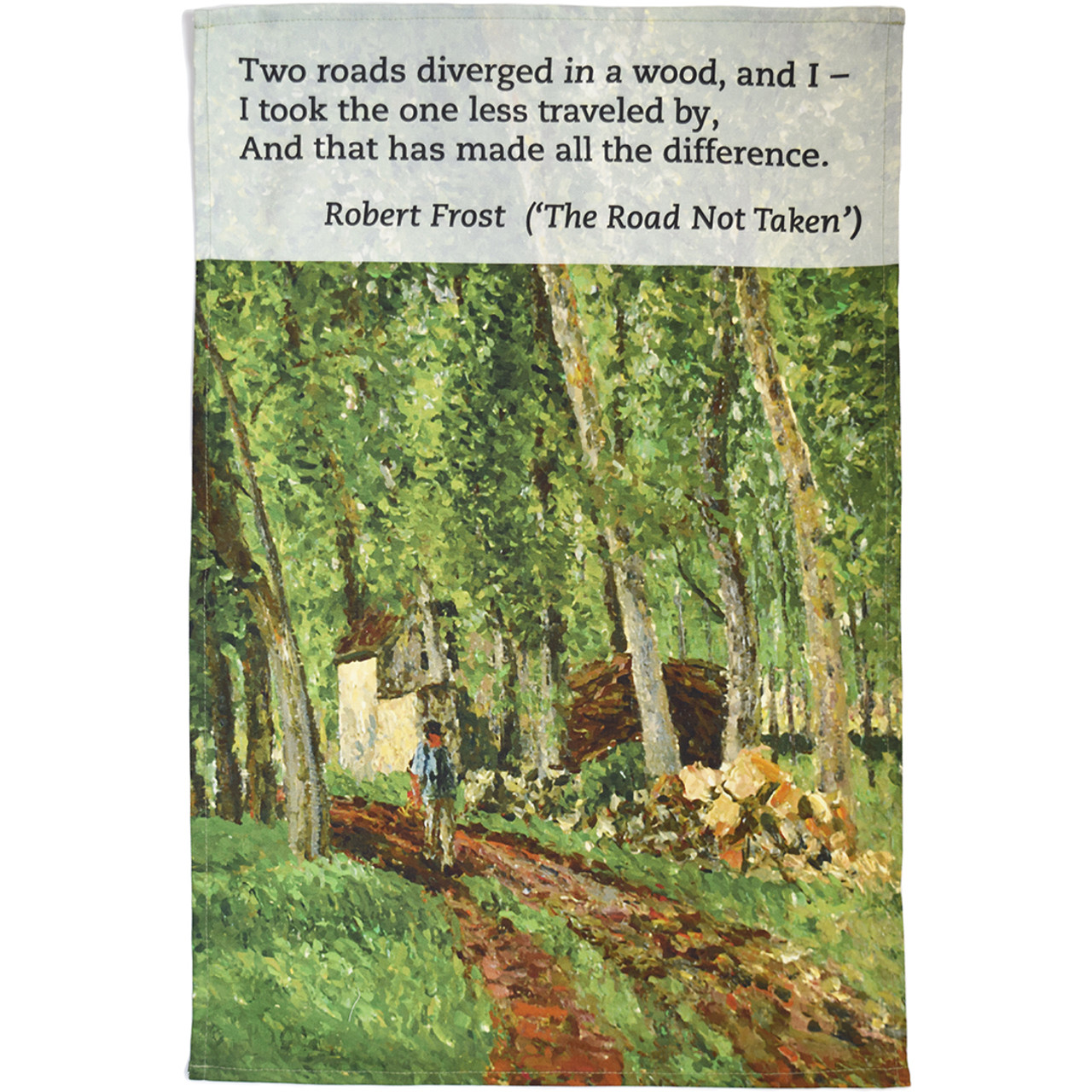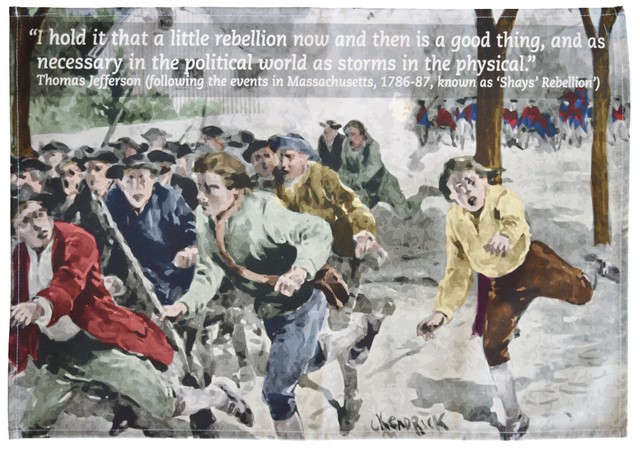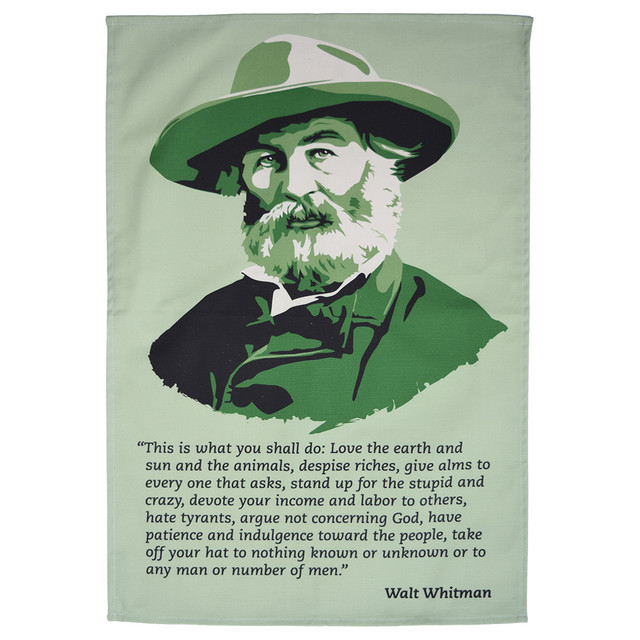Robert Frost: A Conservative Poet in Radical History
Posted by Pete on 26th Mar 2024
Robert Frost may not have been a radical person, but his poetry is nevertheless part of radical history
"I’d like to get away from earth awhile
And then come back to it and begin over."
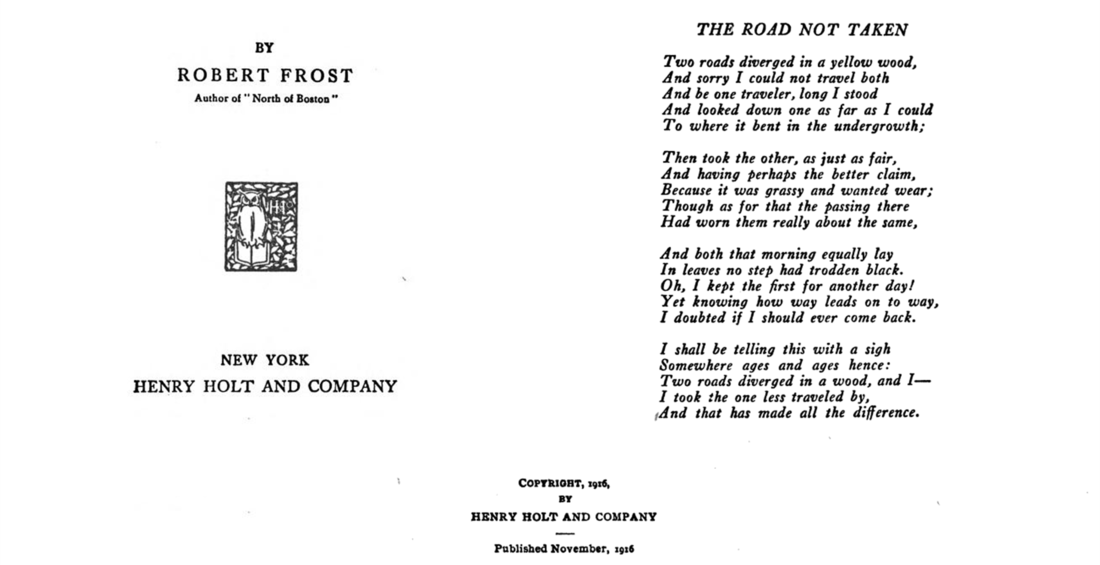
Words have a funny and often mischievous place in radical history.
Books, essays, poems. They have a funny way of getting away from their actual author, and sometimes settling down with another.
For instance, the statement “property is theft” has become synonymous with Karl Marx, but it was actually written by the anarchist Pierre-Joseph Proudhon.
Words can also acquire political associations and meanings completely foreign to the politics of their author. That’s true of the writing of Jane Austen and Christina Rossetti, neither of them radicals.
The same is true of the New England poet, Robert Frost, born today in 1874.
Frost's famous poem has multiple interpretations, and may have been a joke for an indecisive friend
See the Robert Frost 'Road Not Taken' tea towel
Frost was actually born in San Francisco, but his father's family had deep roots in New England, and Frost’s poetry became closely associated with the region.
You’d struggle to paint Robert Frost as a political progressive.
His family were Democrats in the period when that political party was still the more reactionary one in the U.S., closely associated with white supremacism and the cause of the Confederate rebels in the Civil War.
And Frost didn’t break with his family’s politics. He remained a supporter of the states’ rights discourse of the Confederacy, with its encoded racial politics and nostalgia for the pre-abolition South.
During the 1930s, these reactionary instincts made Frost a vicious critic of the New Deal, with its new vision of the federal government as an agent of social justice for America’s multiracial working class.
However, despite Frost’s unhidden right-wing tendencies in life, his poetry was not so clear-cut.
Frost's poetry was tied to a radical agrarian culture that eventually grew into a working-class politics in America
See the Shays' Rebellion tea towel
Frost is still one of the most feted poets in U.S. history, having received no fewer than four Pulitzer Prizes for Poetry.
Frost’s poetic writing focused on the themes and dilemmas of rural life in New England, where he spent most of his life after his mother moved to Massachusetts following the death of his father.
Regardless of his own political commitments in late-nineteenth and early-twentieth-century America, this rural, agrarian vibe tied Frost’s poetry to a cultural and political tradition in U.S. history which contained plenty of radical offshoots.
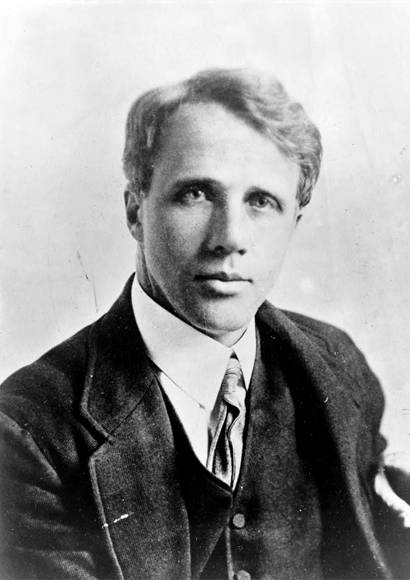
Robert Lee Frost in about 1910
It went back to Thomas Jefferson’s ideal of an agrarian republican democracy during the age of revolutions. And, whereas there were clear continuities between Jefferson and Frost’s racial politics, the former had a revolutionary streak, too.
Moreover, this sort of radical agrarian politics in the U.S. had become much more progressive during the late nineteenth century with the Populist movement, where some particularly radical thinkers sought to cross racial divides to form an unstoppable, working-class politics in America.
Frost’s literary predecessors and influences – poets including Walt Whitman and Henry David Thoreau – also tied their shared poetic themes of rural life to a more progressive politics than Frost. Whether he liked it or not, then, he was part of a cultural tradition which involved some serious, radical flair.
Frost was part of a poetic tradition including more progressive poets such as Walt Whitman and Henry David Thoreau
See the Walt Whitman tea towel
Frost’s technique as a poet, independent of his content, also had progressive implications.
Like Charles Dickens (another writer with dubious politics), Frost gave time and space to ordinary people.
Frost mastered the art of writing poetry in colloquial American language, familiar to and created by working-class Americans. In this sense, as a poet, Frost had a popular, even progressive, touch.
And the words and phrases written by Frost have proved able to escape his own right-wing ideals, to create a political life of their own.
The quote from Frost’s poem “The Road Not Taken” on our Radical Tea Towel captures the revolutionary possibility of breaking with social tradition.
"Two roads diverged in a wood, and I –
I took the one less travelled by,
And that has made all the difference."
Frost’s poetry could be so inspiring for progressive politics that the Indian anticolonial leader, Jawaharlal Nehru, always kept a copy of Frost’s poetry with him.
Robert Frost may not have been a radical person, but his poetry is nevertheless part of radical history.

